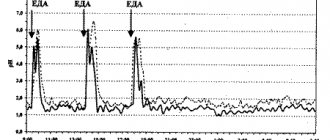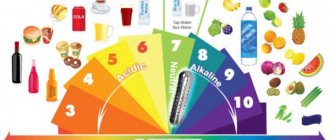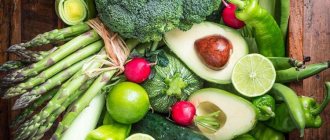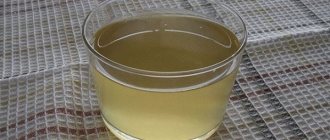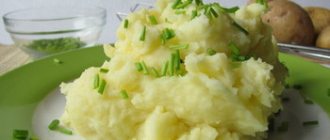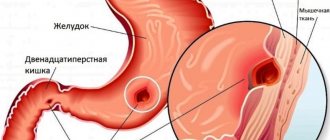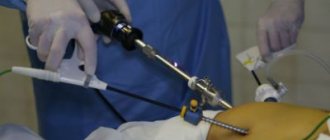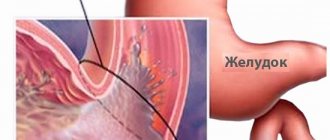Zero acidity of the stomach is a pathological process that is caused by certain etiological factors and leads to disruption of the natural process of acid production in the mucous membrane of the organ. The development of such a disease leads to the penetration of pathogenic organisms into the mucous membranes of the gastrointestinal tract, which ultimately leads to inflammatory processes in the intestines. In addition, with zero acidity in the stomach, proteins are poorly digested, which also leads to extremely negative consequences - cancer processes and intoxication of the body.
- Etiology
- Symptoms
- Diagnostics
- Treatment
- Prevention
When this pathological process manifests itself, you should immediately seek medical help, and not carry out therapeutic measures at your own discretion. In most cases, conservative therapy with a mandatory diet takes place.
Pathogenesis
The level of acidity is an important indicator on which the digestive process depends. The main component of gastric juice is hydrochloric acid, which is present in various parts of the gastrointestinal tract. Its concentration should be different in all zones.
Acidity can be normal, low or high. Zero coefficient is the lowest limit of acidity.
Do not self-medicate under any circumstances, otherwise the recovery process will be long and extremely painful. Hydrochloric acid plays the role of an indicator of the acidity of gastric juice. When it is at zero, proper disinfection of the food mass does not occur. This disrupts the intestinal microflora and also provokes the active proliferation of pathogenic microorganisms.
The main clinical picture with zero acidity of gastric secretion:
- frequent constipation is observed. Due to reduced intestinal motility, food debris is not able to be evacuated quickly and completely;
- release of toxins, causing discomfort and pain, especially after eating;
- lack of appetite;
- metallic taste in the mouth;
- bad breath caused by rotting food;
- a peculiar viscosity prevails in the oral cavity due to the restructuring of the saliva structure;
If there is pain, fever and nausea, then the pathology has worsened and spread. Having discovered the listed signs, you should consult a doctor to begin direct treatment of the disease.
Treatment of the disease
At the first symptoms of zero acidity, you should immediately consult a doctor, because at any moment this pathology can worsen. With this disease, a complete cure for the disease is impossible. The patient must comply with the therapy process and proper nutrition conditions throughout his life. Only the symptoms are relieved and further progression of the disease is blocked. Treatment involves an integrated approach. The patient should use traditional and traditional medicine. These techniques can be used at home and in the hospital.
Drugs
To eliminate digestive problems, the patient is prescribed enzyme preparations. Zero acidity can be eliminated by using enzymes that improve digestion. The use of medicinal herbs has a good effect, but for greater effectiveness these remedies must be used for a long period of time and often repeat the course of therapy. Doctors also use drugs that can replace hydrochloric acid.
Anacidic gastritis cannot be ignored, since without timely treatment the disease becomes severe, the process of eating becomes more complicated and there is a possible risk of complications.
How to treat?
Acidity tending to zero should be treated immediately, so at the first signs of illness you should consult a doctor. If treatment for acidity 0 is not started in time, an exacerbation of the disease may occur. The greatest effectiveness can be achieved by using special drugs that affect the mechanisms and form the acidity of the stomach. But, unfortunately, this method of treatment has not yet been fully developed, so there is no other way out but to deal with zero acidity using less effective methods.
Zero acidity therapy is mainly carried out with drugs based on artificial enzymes, which have a beneficial effect on the process of digesting food and assimilation of useful components. No less effective medicines for the treatment of zero production of hydrochloric acid are medicinal herbs. Therapy with herbal components has the disadvantage of long-term treatment and the need to repeat the course after a certain time.
Doctors strongly recommend paying attention to the symptoms and immediately starting to treat the disease, since failure to contact a medical facility in a timely manner will lead to the development of a severe form of the disease. It is imperative to adhere to proper nutrition and perform therapeutic exercises, which will help improve your health.
Features of the treatment of anacid gastritis
To prevent the pathology from becoming acute, it is important to start treatment in a timely manner. Despite the fact that existing treatment methods do not guarantee a 100% recovery, it is possible to maintain normal health without allowing the situation to worsen. The main principle of therapy is to replenish the deficiency of hydrochloric acid with the help of replacement agents.
The optimal method of treatment is the use of appropriate medications that affect the mechanisms of hydrochloric acid production. It is also important to pay due attention to the course of rehabilitation and preventive measures. Basically, medications with artificial enzymes are used - Mezim, Festal, which help improve the process of digesting food, as well as the subsequent absorption of nutrients.
It is strictly forbidden to ignore such a condition. Otherwise, anacid gastritis will acquire a chronic form that is difficult to treat. The gastroenterologist prescribes diet therapy, which plays an important role in the therapeutic course. It is also necessary to lead an active, healthy lifestyle. An excellent choice of therapy is spa treatment.
As for traditional medicine, it provides a number of effective recipes that help normalize the concentration of hydrochloric acid in the stomach. As a rule, such therapy is used at the early stage of gastritis. If intense symptoms are observed, medication is required.
For zero acidity, plantain juice is used. This remedy is considered one of the most affordable. To prepare it, you need to take 4 plantain leaves, wash them thoroughly and pass through a meat grinder. The squeezed juice is consumed before meals. Experts recommend adding plantain leaves to various salads and dishes. Improvement in well-being is felt after a few days.
Drink 250 milliliters of warm water daily with the addition of a teaspoon of natural flower honey. This method helps to normalize the activity of the gastrointestinal tract, and also significantly improves the digestion process. The honey drink is taken half an hour before meals.
Only the attending physician should select a course of treatment for anacid gastritis. With the help of proper therapy, you can quickly relieve symptoms, relieve exacerbation and restore the functioning of the gastrointestinal tract. To avoid exacerbations, during the period of remission it is necessary to adhere to the principles of therapeutic nutrition.
Treatment for zero stomach acidity is prescribed only by a doctor. It is imperative to start treatment as early as possible, because... this pathological phenomenon has serious consequences. Zero acidity of gastric juice is considered a fairly common pathology, especially in modern conditions and the fast pace of life. This phenomenon is also known as "anacidic gastritis".
The acidity level of juice in the stomach is an important indicator. It is he who is responsible for the normal digestion of food coma. The main component responsible for acidity is hydrochloric acid. It is found in different parts of the intestines and stomach, and the level of its acidity in all zones should be different. In addition, the acidity in the stomach may be excessively high or low. The zero coefficient is the lower limit of acidity when the value can no longer fall below.
Why does it happen?
What results in zero acidity of gastric juice? The question is of interest to those who have encountered anacid gastritis at least once in their lives. The following factors contribute to the appearance of low acidity:
- violations of diet and diet balance;
- frequent nervous strain and stressful situations negatively affect the production of hydrochloric acid in the digestive juice;
- genetic predisposition;
- malignant neoplasms in the stomach that affect acid-producing cells;
- chronic gastritis, in which cell death occurs and acidity levels decrease.
Healing exercise
When treating zero acidity, physical exercise plays a significant role, which helps to establish normal functioning of the stomach and increase the level of chloride acid produced. There are no difficulties in performing the exercises; it is enough to periodically make rotational movements to the sides with your limbs bent at the knees. The position during this exercise should be horizontal with the buttocks pressed to the floor. You need to place your arms along your body and tighten your abdominal muscles.
A good effect is obtained after performing an exercise called “cat stance”. To do this, lie on your stomach and rest your palms on the floor at chest level. The torso must be periodically raised up, alternately bending the back down and straightening it up. You need to repeat this exercise 20 times. Bends of the torso in all directions and squats will be useful. When performing therapeutic exercises, you should not overload yourself and strain your abdominal muscles.
Useful video
You can learn how to determine acidity from this video.
Traditional medicine recipes
Traditional medicine is recommended by doctors as an excellent addition to the treatment program. There are many effective proven recipes.
Here are some examples:
- Viburnum infusion - a three-liter jar is filled to the top with well-washed viburnum berries, filled to the brim with clean drinking water, infused in a dark place for 10 days, filtered, and put in the refrigerator. Take 50 ml before each meal.
- Whey - drink it continuously throughout the day for 1-2 weeks - instead of water, tea and other drinks.
- Herbal mixture - 1 tablespoon of wormwood, lemon balm, yarrow, brew 1 liter of boiling water overnight, cover. Strain in the morning and drink 1 glass during the day before each meal.
- Plantain tea with honey - pour 1 tablespoon of chopped herb into a glass of boiling water, filter after half an hour, add a teaspoon of honey, take before meals.
There are many more good effective recipes that include sea buckthorn berries, currants, lingonberries, Chinese lemongrass, calamus root and other useful plants. Your doctor will help you make the right choice among the many natural remedies.
Traditional medicine
Traditional medicine also offers recipes that help normalize the level of acidity in the stomach. Of course, if the disease is protracted, then they are unlikely to be able to completely replace enzymatic therapy, but in the early stages of the development of such gastritis, recipes based on natural ingredients will be able to cope with the problem.
If the acidity level is low, you can use plantain juice. This is the simplest remedy. To prepare it, you should collect the leaves of the plant, wash them thoroughly, and then use a juicer. You can simply rub the leaves through a meat grinder and then squeeze out the juice through cheesecloth. You should drink this liquid every time before meals. By the way, plantain leaves can be added to various salads. This will only improve the patient’s well-being within a couple of days.
Every day you should drink a glass of warm water, in which a spoonful of honey is pre-mixed. This not only has a beneficial effect on the functioning of the stomach, but also helps better digestion. The drink should be consumed 30 minutes before meals. You can brew dry raspberry leaves, viburnum, rose hips, and aloe.
How does Omez® 10 mg affect stomach acidity?
Omez® 10 mg with the active ingredient omeprazole belongs to the group of proton pump inhibitors and is used to treat heartburn and sour belching1. Omez® 10 mg reduces stomach acidity by suppressing the production of hydrochloric acid1. Thus, it directly affects the cause of heartburn, and not just the symptom.
Omez® 10 mg is a convenient drug to use. It is recommended to take it once a day1. The medicine is available in enteric capsules, so the active substance, even with high acidity, will reach the intestines, where absorption into the blood occurs.
Omez® 10 mg for low stomach acidity further reduces acid production. Therefore, for this disorder of the digestive tract, it is better to use other drugs. In particular, with the development of gastritis with low acidity, replacement therapy directly with hydrochloric acid can be used3.
Reasons for appearance
Among the causes of the disease are:
- poor nutrition;
- taking certain medications;
- hereditary predisposition.
Alcohol consumption can provoke the appearance of pathology. It is not possible to accurately determine the cause of the deviation. If you are predisposed to stomach diseases, a person should take preventive measures.
Zero acidity diet
If a person has zero hydrochloric acid secretion, the doctor prescribes him a special diet to ease the work of the stomach and intestines. Meals should be fractional. In other words, you need to eat often, but in small portions. Thanks to this regimen, there is no heavy load on the stomach, so the person does not feel heaviness.
If the disease has become chronic, then every day you should eat several cranberries or drink a little radish juice. By the way, this juice can be used for salad dressing. And cranberry fruits make good tea (but the juice needs to be squeezed out of them).
If the acidity is extremely low, you will have to completely abandon fried foods. It is best to eat vegetables more often - fresh, boiled or baked in the oven. You will have to avoid fatty foods. The same goes for overly salty or spicy foods. Salt leads to excess weight, which is fraught with a low acidity level, because... metabolism is not active enough. Smoked meat will also have to be excluded from the diet.
It is very important to eat fresh fruit. It is useful to eat large quantities of berries that have a sour taste. They help replenish ascorbic acid in the body. This is necessary to strengthen the human immune system, because... with anacid gastritis, the immune system weakens.
Oddly enough, meat helps many people. But you need to choose a natural product, not sausages. Chicken meat (especially breast) is considered healthy. It can be steamed, baked or boiled. You can make salads with chicken, herbs, vegetables and season them with olive oil.
The effect of zero acidity of gastric juice on stomach ulcers
In medical practice, a stomach ulcer can be diagnosed even with a low level of acidity, despite the fact that many consider this a myth. This is often observed in “aged” patients who have had chronic gastroenterological diseases for a long time. Lack of acid disrupts and weakens barrier functions. Pathogenic microorganisms enter the stomach and disrupt its microflora, which ultimately leads to an inflammatory process on the mucous layer of the organ. Activation of the ulcerative process also occurs after the activation of Helicobacter pylori bacteria.
As a result of a zero level of acidity, there is a failure in the activation of digestive enzymes, which leads to incomplete digestion of proteins that leave toxic substances in the digestive tract . The decay products remaining in the body lead to a decrease in the immune system and the creation of malignant formations.
Danger of disease
Anacidic gastritis can lead to erosions. Gastritis with zero acidity leads to poor absorption of food, chronic fatigue and depression. Over time, body weight will begin to decrease and vitamin deficiency will occur. It is necessary to normalize digestive function as early as possible to prevent complications.
Mild constant malaise is characteristic of a sluggish lesion
If acidity is reduced due to genetic predisposition, it is not possible to achieve complete recovery. You will need to constantly adhere to treatment standards to prevent exacerbation.
Etiology
The cause of this pathological process may be the following factors:
- a history of infectious diseases;
- acute gastritis;
- dysentery;
- poor nutrition, which consists of abuse of fast food, dry food, snacks on the go;
- abuse of alcoholic beverages and surrogates;
- prolonged fasting or following a diet that is unsuitable for the body;
- passive lifestyle;
- lack of physical activity;
- long-term treatment or uncontrolled use of medications;
- frequent food poisoning.
It should also be understood that none of the above etiological factors is a 100% predisposition to the development of such a pathological process, but under certain factors it can become the main cause.
Zero acidity in the stomach leads to slow digestion. In addition, in people with this pathological process, atrophy of the mucous membrane begins, which leads to disruption of the production of gastric juice.
Causes and symptoms
Factors influencing the formation of pathology are unknown. But doctors identify the following possible options:
- metabolic disorder;
- prolonged fasting;
- poor nutrition;
- inactive lifestyle;
- alcohol abuse;
- genetic predisposition;
- oncology;
- stressful situations.
A patient with zero stomach acidity is concerned about the following symptoms:
Such patients often suffer from constipation.
- pain and discomfort after eating;
- viscosity in the oral cavity;
- decreased appetite and metallic taste in the mouth;
- increased body temperature;
- systematic constipation.
If nausea or complications occur against the background of the main symptoms, you should immediately consult a doctor. This indicates that the disease is developing into a more complex form. And you need to be treated not only for zero acidity, but also for other dangerous gastrointestinal diseases. Hypoacid gastritis often develops as a complication; the disease is characterized by a decrease in the production of the secret function of the glands.
If a person has the first signs of the disease, they should immediately consult a doctor who knows how to properly treat the pathology.
Diagnostics
First of all, a gastroenterologist examines the patient, during which he must establish the following:
- how long ago and under what circumstances the first symptoms began to appear;
- what additional signs are present;
- how the patient eats, whether he takes any medications on an ongoing basis;
- Do you have a history of chronic gastrointestinal diseases or food allergies?
It should be noted that in addition to consulting a gastroenterologist, you may need to be examined by an infectious disease specialist and an allergist.
To clarify the diagnosis and identify the etiology, the following laboratory and instrumental research methods may also be prescribed:
- general clinical analysis of blood and urine;
- general analysis of stool;
- coprogram;
- X-ray with contrast agent;
- fibrogastroscopy;
- biopsy of the gastric mucosa;
- bacteriological analysis of stomach contents;
- PCR test;
- intragastric pH-metry.
Intragastric pH-metry
Data from the examination results make it possible to establish the cause of the development of such a pathological process and, based on this, establish the most effective treatment tactics.
Symptoms
The clinical picture of this pathological process at the initial stage of development can be asymptomatic. As the disease worsens, the following symptoms may appear:
- pain and discomfort in the epigastric region, unpleasant sensations can radiate to the back;
- heaviness in the stomach;
- belching with an unpleasant odor;
- heartburn;
- bad breath;
- metallic taste in the mouth;
- prolonged constipation. The stool may contain mucus and undigested pieces of food;
- nausea, which is often accompanied by vomiting. Vomit may contain mucus, bile, and blood impurities;
- sudden weight loss accompanied by frequent vomiting and diarrhea, loss of appetite;
- abdominal pain, which is most often localized in the abdominal cavity;
- bloating, increased flatulence;
Against the background of such a clinical picture, an exacerbation of existing diseases or the development of pancreatitis, cholecystitis and other gastroenterological ailments with a similar etiology may be observed.
These clinical manifestations are the main predisposition for a visit to a gastroenterologist. Consultation with other specialists may be necessary.
What changes in the body should be adjusted
In order to prevent complications, it is enough to promptly suspect a violation of the level of activity of digestive juice and contact a gastroenterologist. What “bells” should alert you:
- Frequent constipation.
- Decreased appetite and unexplained weight loss.
- Rotten breath (halitosis).
- Flatulence.
- Belching after eating.
- Heaviness in the pit of the stomach.
- Dull pain in the stomach.
All these signs may indicate that the acidity of gastric juice is reduced down to “zero” levels. As a result, not only is the process of digesting food and assimilation of vital substances disrupted, but also the resistance of the gastrointestinal tract to bacterial agents is reduced.
A timely visit to a gastroenterologist will help maintain the health of not only the stomach, but also the entire body as a whole. Do not self-medicate – entrust the care of your health to specialists!
Definition
In the human body, the formation of the acidity level of digestive juice occurs due to hydrochloric acid produced by the cells of the gastric glands. If the production of chloride acid is impaired, zero acidity (anacidic gastritis) is formed, which results in the formation of excess hydroxypropionic acid in the digestive tract. Zero acidity of the stomach is a pathological phenomenon that is caused by the entry of microorganisms into the mucous layer of the gastrointestinal tract, which leads to the formation of inflammation.
The danger of inflammatory processes is due to a decrease in the functionality of the gastrointestinal tract, resulting in constipation. Anacidic gastritis is characterized by imperfect breakdown of proteins in the stomach, which is dangerous due to the formation of intoxication and malignant formations.
Treatment
In most cases, treatment of zero stomach acidity is carried out using conservative methods, however, it should be noted that this disease cannot be completely eliminated. The issue of hospitalization is decided on an individual basis.
Drug treatment may consist of taking the following drugs:
- enzymes;
- prokinetics;
- antispasmodics;
- hydrochloric acid preparations;
- to improve gastric motility;
- antiemetics to prevent dehydration.
A mandatory component is dietary nutrition. A diet with zero stomach acidity prohibits the consumption of the following foods:
- fatty, salty, spicy, smoked;
- butter;
- foods that cause fermentation in the stomach;
- marinades;
- fresh bakery;
- sauces, including mayonnaise;
- hard-boiled eggs;
- legumes and mushrooms;
- raw vegetables;
- fruits and berries without heat treatment and with seeds;
- radish, onion, garlic, pepper, sorrel;
- chocolate, ice cream and similar confectionery products;
- strong tea and coffee, cocoa;
- sweet carbonated drinks;
- alcohol.
The patient's diet should be based on the following foods:
- thermally processed vegetables, fruits, berries. The best option would be to prepare casseroles, jellies, and soufflés from them;
- lean poultry and fish;
- soaked herring;
- doctor's or milk boiled sausage, low-fat ham;
- yesterday's wheat bread and similar bakery products;
- water- or milk-based porridge (only wheat and pearl barley are prohibited);
- fermented milk products, but subject to good tolerance and no more than 15 grams per day;
- steam omelettes and soft-boiled eggs;
- parsley, dill, fresh or dried, as an addition to dishes;
- vegetable oil;
- tea with milk, rosehip or blackcurrant decoction. It is not prohibited to add a small amount of honey; it is better to avoid sugar.
The optimal cooking mode is boiled, baked without crust, steamed. The patient should eat often, but in small portions, keeping an interval between meals of at least 2.5–3 hours. The consistency of the food should be liquid, puree, and grated. Food should only be consumed warm. Maintaining an optimal drinking regime is also very important.
In this case, treatment with folk remedies is not prohibited, but it can only be considered as an addition to the main course of therapy and after consultation with the attending physician. In this case, it is effective to use the following traditional medicine recipes:
- taking warm water with honey on an empty stomach;
- plantain leaf juice;
- a mixture of honey and butter - this remedy should be taken one tablespoon half an hour before meals, several times a day;
- tincture of aloe, anise and rose hips.
The same remedies can be used as prophylaxis, but only after consultation with your doctor.
You need to understand that only a qualified medical specialist can tell you how to treat this disease correctly and after carrying out all the necessary diagnostic procedures. Self-medication can relieve symptoms, but does not guarantee complete elimination of the disease. Consequently, relapse of the pathological process, as well as the development of accompanying complications, cannot be excluded.
Diet
With anacid gastritis, dietary nutrition does not prohibit the consumption of dishes prepared using various heat treatments. Food products may be baked, boiled or stewed. As a last resort, you can fry, but without bringing it to a rough crust and without using flour or breadcrumbs. Thus, the following list of products is allowed:
- non-rich broths made from lean meat or fish, with the addition of cereals, noodles, potatoes and vegetables;
- yesterday's white bread;
- lean meat and fish that can be boiled, stewed or baked;
- milk sausage and unsalted herring may also be present in the diet of a patient with a zero acidity level;
- zucchini, potatoes, pumpkin and carrots, boiled or baked, are allowed for anacid gastritis;
- buckwheat, rice, semolina and other types of porridges, except millet or pearl barley, cooked in water with the addition of a third of milk;
- baked apples;
- jelly, compotes, preserves and jams from various berries and fruits;
- raw raspberries, wild strawberries and strawberries, as well as peeled apples and pears;
- steamed or fried omelettes and soft-boiled eggs;
- weak tea, coffee with milk and currant infusions;
- fermented milk products and dishes made from them;
- butter, sunflower, olive oils.
The following foods should be absent from the therapeutic diet:
- mayonnaise, store-bought ketchup and other sauces;
- legumes;
- fish and meat of fatty varieties;
- hard-boiled eggs;
- canned food and smoked products;
- raw vegetables, fruits and berries;
- chocolate;
- pickled vegetables;
- over-salted dishes;
- cucumbers, onions, mushrooms, garlic and sweet peppers.
If a patient has been diagnosed with acidity tending to zero, then he needs to adhere to a diet that consists of eating food in small portions. It is important that after a meal a person does not feel heaviness in the stomach and gets up from the table with a slight feeling of hunger.
Prevention
It is impossible to completely exclude the development of this pathological process, but you can minimize the risk of development if you apply the following in practice:
- monitor your diet - it should be balanced for the body, food should be consumed in a timely manner and in a calm environment;
- gastroenterological diseases need to be treated correctly and in a timely manner - this will help to avoid associated complications;
- If possible, you need to protect yourself from stress and psycho-emotional stress.
In addition, it is rational to systematically carry out preventive examinations with a gastroenterologist and other highly qualified medical specialists. Such measures will help to diagnose the disease in a timely manner or prevent its development altogether.
A healthy lifestyle to protect your stomach health
It has long been no secret that it is impossible to consider the state of any organ in isolation from the body, because all systems are closely interconnected. That is why general health can help the stomach return to “normal” as quickly as possible.
If you want to forget about problems with acidity, then in addition to traditional treatment, engage in complete recovery - stop smoking, drinking alcohol, try to avoid stress, adjust your wakefulness and sleep patterns, move more, spend enough time in the fresh air.
Zero stomach acidity is a very serious disorder that requires immediate treatment, because complications can be quite serious. But if you are attentive to your body and consult a doctor in a timely manner, improvement will not take long. Be healthy!
Treatment with traditional medicine recipes
When the first signs of zero stomach acidity appear, the patient can be helped by the following recipes taken from alternative medicine:
- Freshly squeezed juice from plantain leaves. It is necessary to consume a large spoonful of the medicinal liquid before each meal. After just a few days of use, this remedy will have a positive result and improve the sensations after eating food. You can achieve greater effect with the help of plantain leaves, making salads from them.
- Warm water with honey. Regular heated water with diluted honey increases the acidity level. You need to mix a tablespoon of honey in 200 ml of warm liquid and drink it in the morning and evening half an hour before meals.
- Honey with butter. The components are mixed and placed in the cold. The cooled consistency should be taken in a large spoon three times a day 30-40 minutes before eating.

